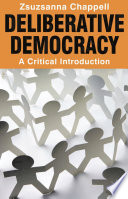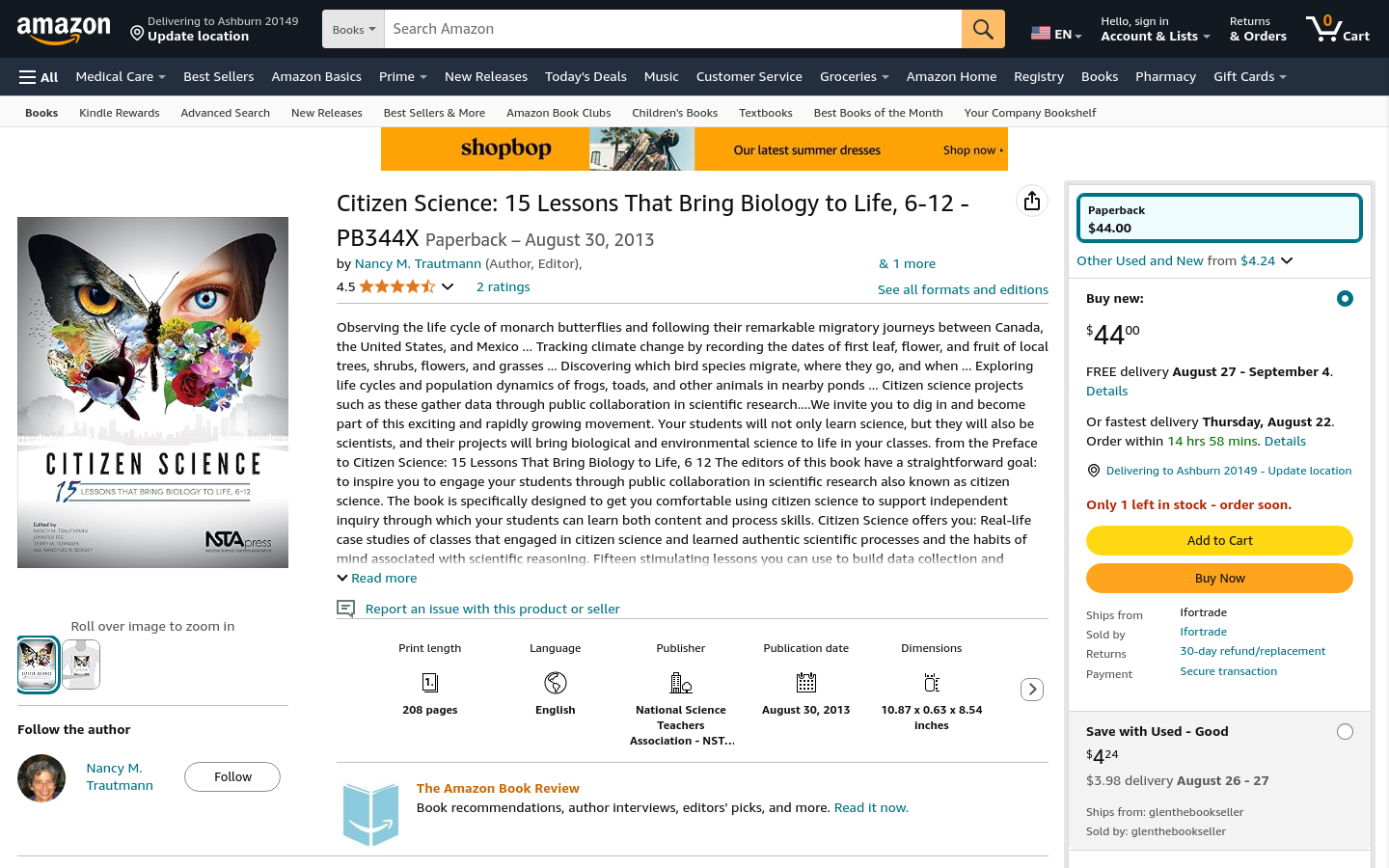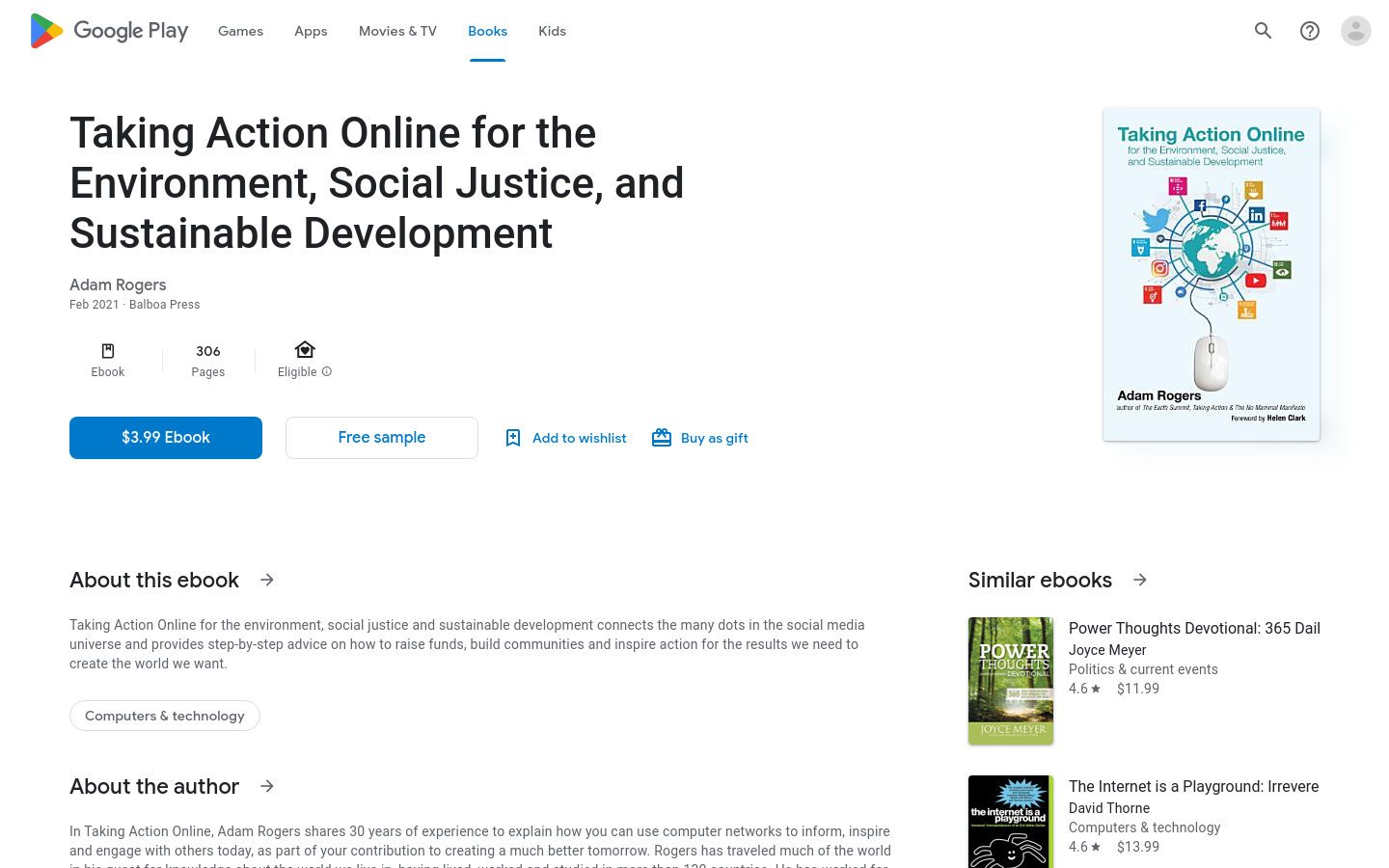Civic Tech Field Guide
Sharing knowledge and productively growing the fieldSearch 12479 projects
Showing 12479 Results

The powerful potential of digital media to engage citizens in political actions has now crossed our news screens many times

The twelve chapters in this volume present the perspectives of insiders like founder Wade Rathke and leading outside practitioners and academics.

This book argues that ethical evaluation of AI should be an integral part of public service ethics and that an effective normative framework is needed to provide ethical principles and evaluation for decision-making in the public sphere, at both local and international levels

This book provides an ideal starting point in understanding the core concepts of deliberative democracy

This book examines the transition from e-government to digital governance in light of the financial exigencies and political controversies facing many governments

With The Data Journalism Handbook, you’ll explore the potential, limits, and applied uses of this new and fascinating field.

Shapiro brings much-needed empirical research to a field that has often relied on “10,000-foot views.” Timely, important, and expertly researched, Design, Control, Predict doesn’t just help us comprehend urbanism today—it advances ...

Major themes of this book are smart cities, urban big data, and shared mobility. This book also contains chapters with cutting-edge research on urban modeling, walkability and bikeability analysis, and planning support systems (PSS).

In this book, the real-world implementations of successful Smart City technology in places like New York, Amsterdam, Copenhagen, and more are analyzed, and insights are gained from recorded attempts in similar urban centers that have not ...

This book illustrates how social media platforms enable us to understand everyday politics and evaluates the extent to which they can foster accountability, transparency and responsiveness

In acht Kapiteln aus der Zeit von 2013 bis 2020 sucht Ingolf Pernice die Auswirkungen der Digitalisierung auf unsere Konzepte von Staat und Verfassung zu erschließen: Vom Strukturwandel von Öffentlichkeit und Politik und einem neuen Verhältnis von Staat und Bürger bis hin zu den Bedingungen einer "Verfassung des Internets" und den Möglichkeiten demokratischer Selbstbestimmung auch auf globaler Ebene

This book provides the most current and comprehensive overview available today of the critical role of information systems in emergency response and preparedness

This White Paper sets out clearly how the UK will continue to unlock and seize the benefits of data sharing in the future in a responsible way.

Anyone interested in using data for social good should read this book." —Stefaan Verhulst, Co-Founder of The Govlab, New York University and Editor-in-Chief of Data & Policy “The non-profit needs to build data capability so it continues ...

The Deliberative Democracy Handbook is a terrific resource for democratic practitioners and theorists alike

This thesis frames the ongoing collection of location data as an ongoing population survey. The ethics of data collection are beyond the scope of this work.

Explains how the creation and development of the Internet has changed American politics, discussing how the Internet can be used to research political issues, tap into important resources, reach legislators and the media, and organize ...

Drawing on the theoretical debates, practical applications, and sectoral approaches in the field, this ground-breaking Handbook unpacks the political and regulatory developments in AI and big data governance. Covering the political implications of big data and AI on international relations, as well as emerging initiatives for legal regulation, it provides an accessible overview of ongoing data science discourses in politics, law and governance. This title contains one or more Open Access chapters.

As we move into an era of unprecedented volumes of data and computing power, the benefits aren't for business alone. Data can help citizens access government, hold it accountable and build new services to help themselves. Simply making data available is not sufficient. The use of data for the public good is being driven by a distributed community of media, nonprofits, academics and civic advocates. This report from O'Reilly Radar highlights the principles of data in the public good, and surveys areas where data is already being used to great effect, covering: Consumer finance Transit data Government transparency Data journalism Aid and development Crisis and emergency response Healthcare

This book offers the most vital, up-to-date research within the field of disaster management technologies, offering research and updates from authors from around the world, with a variety of perspectives and insights into the most cutting edge technology the field has to offer--Provided by publisher

Charts the strategic thinking behind the mosaic of movements currently challenging neoliberal globalization.

Located at the nexus between politics and the digital, this PhD thesis wants to shed light on the changing dynamics, opportunities and challenges citizens and parties are confronted with due to ongoing technological changes

Social networking is one of the most common online activities, and integral to the lives of people around the world

Deliberative Democracy between Theory and Practice cuts across this debate by clarifying the structure of a deliberative democratic system, and goes on to re-evaluate the main empirical challenges to deliberative democracy in light of this

This book's purpose is to warn people of the dangers of too much social media usage, also exposing dangers that exist with social media

The editors of this book have a straightforward goal: to inspire you to engage your students through public collaboration in scientific research--also known as citizen science.

This book looks at open data practices historically and from the perspective of those currently involved in advocating for making government data freely available

This book looks at what makes a city smart by describing, challenging, and offering democratic alternatives to the view that the answer begins and ends with technology.

Democracy in the Digital Age is a fascinating philosophical exploration of how the emerging information and communication technologies are impacting political participation in the United States

Taking Action Online for the environment, social justice and sustainable development connects the many dots in the social media universe and provides step-by-step advice on how to raise funds, build communities and inspire action for the results we need to create the world we want

This is what happens with most technologies: They begin in the hands of the few, and they end up in the hands of the many

This book is a collection of reflections by thought leaders at first-mover organizations in the exploding field of "Data Science for Social Good", meant as the application of knowledge from computer science, complex systems and ...

"Bob Hanke's "Smarter Toronto" is an important study of a key event in the recent history of urban planning, technological innovataion and urban journalism."

Who Counts? is the story of the lawsuits, congressional hearings, and bureaucratic intrigues surrounding the 1990 census

This book is written to make it easier and faster for someone to get up to speed on Government Open Data (here on in referred to as 'open data')

Social design is design for society and with society. As social innovation and on the basis of dialogue and participation, social design strives for a new networking of the individual, civil society, government, and the economy.

This clear-eyed guide steps back from hyperbolic hopes and fears to offer a balanced account of what aspects of politics are being shaped by digital media and what remains unchanged









